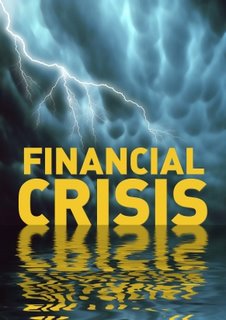 Credit industry decisions over the past several years have played a significant role in the rising number of bankruptcies. Like falling dominoes, the impact of one bad decision led to another and another.
Credit industry decisions over the past several years have played a significant role in the rising number of bankruptcies. Like falling dominoes, the impact of one bad decision led to another and another.
Start with the glut of “bad credit” loans extended to people who could only qualify using a “teaser” rate of 0.99% or 1.99%. Those consumers had hope that their income would rise sufficiently to meet the new payment when the ARM’s reset and they suddenly had to pay 7 or 8 or 9 percent.
Others believed that they would live in their home for 3 years, build equity, and sell the home before the interest rate adjusted. Yet others were assured that since their credit scores would have improved over time, they’d qualify for a new, fixed-rate mortgage long before the interest increased.
For a few, it probably worked as planned. But for the majority, it did not. Some turned to their credit card cash limits to make the payments while they hoped for a refinance or a sale – driving their debt to frightening heights and lowering their credit scores and their chances of a refinance even further.
And then, seeing those consumers drawing cash advances, the credit card companies reduced their credit limits and raised their interest rates to a point where many were unable to meet even minimum payments.
When foreclosed homes began to hit the market, home prices plummeted because mortgage companies must dispose of real estate as quickly as possible. Now short sales and foreclosures continue to dominate the real estate market and prices continue to fall. Bargains abound for those with hefty bank accounts and high credit scores.
But those consumers who went farther and farther into credit card debt in an effort to save their homes are faced with debt they cannot pay – especially when many have lost their jobs as a result of this fallout.
Bankruptcy appears to be the only option for many.
If you’re among the thousands considering this option, be aware that you have 2 choices: Chapter 7 and Chapter 13.
Chapter 7 will remove all unsecured debt, including credit card balances, medical bills, utility bills, etc. Your secured debt will remain.
Chapter 13 is for consumers without much unsecured debt and who want to hang on to their homes. Bankruptcy courts are helping these consumers work out repayment plans they can live with.
Both methods will significantly hurt your FICO scores and could prevent you from obtaining new lines of credit. Chapter 7 remains on your credit report for 10 years, while Chapter 13 will remain for 7 years.
Both methods have strict requirements, so if this is an option you’re considering, do further research to see how your life will be affected.
For many, simply not paying credit card debt has turned out to be the wisest choice. Your credit scores will still suffer, but as long as you can maintain your mortgage payment, your house won’t be in danger and your life won’t be structured by a 3rd party.
